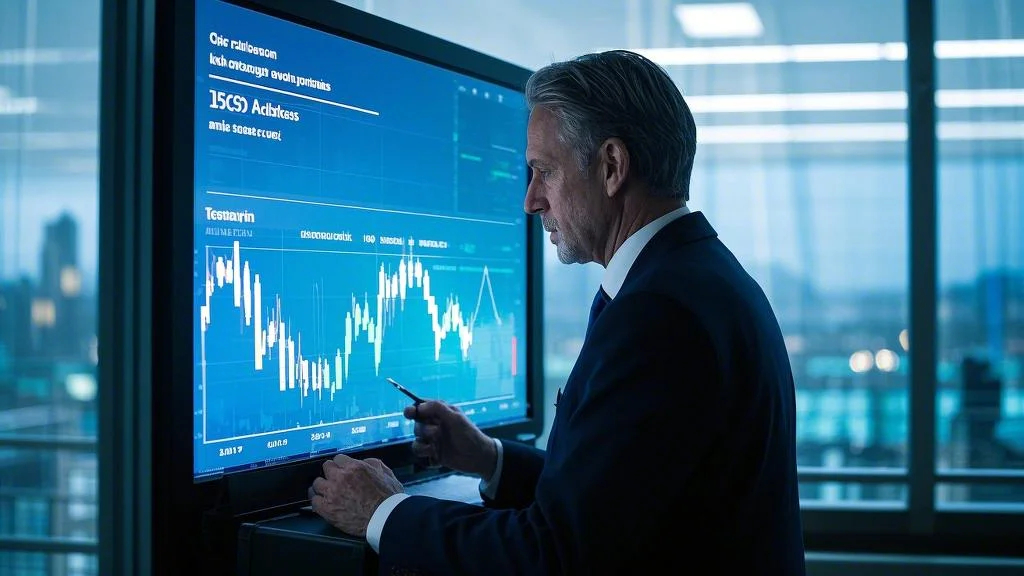The Impact of Global Trade Disruptions on Investments
In today's interconnected world, disruptions in global trade can have significant impacts on investment portfolios. These disruptions, which can stem from various factors such as geopolitical tensions, pandemics, or natural disasters, often lead to volatility in stock market trends and currency fluctuations. Understanding how these disruptions affect different asset classes is crucial for investors looking to protect and grow their wealth in uncertain times.
One of the primary ways global trade disruptions affect investments is through their impact on corporate earnings. Companies heavily reliant on international trade may experience supply chain disruptions, increased costs, or reduced demand for their products. These factors can lead to downward pressure on stock prices, particularly in sectors such as manufacturing, technology, and consumer goods. Investors need to carefully monitor these developments and adjust their portfolios accordingly.
Economic Indicators and Trade Disruptions
When analyzing the impact of global trade disruptions, it's essential to consider various economic indicators. These indicators, which include trade balances, manufacturing indices, and consumer confidence measures, can provide valuable insights into the health of the global economy and potential risks to investment portfolios. For instance, a significant decline in export orders or a sharp increase in import costs could signal potential trouble for companies with international exposure.
Investors should also pay attention to leading indicators that might predict future trade disruptions. These could include political developments, changes in trade policies, or shifts in global supply chain dynamics. By monitoring these indicators, investors can better anticipate potential risks and adjust their investment strategies accordingly.
Stock Market Trends in Times of Trade Uncertainty
During periods of global trade uncertainty, stock market trends often become more volatile. Companies with significant international exposure may see their stock prices fluctuate more dramatically as investors reassess their growth prospects. Conversely, companies with primarily domestic operations or those in defensive sectors may become more attractive to investors seeking stability.
Understanding these trends is crucial for portfolio management. Investors might consider increasing their exposure to sectors less affected by trade disruptions, such as healthcare or utilities, while reducing exposure to more vulnerable sectors. Additionally, maintaining a diversified portfolio can help mitigate the impact of trade-related volatility on overall investment performance.

Currency Fluctuations and Their Impact on Investments
Global trade disruptions often lead to significant currency fluctuations, which can have a profound impact on investment portfolios. When trade flows are disrupted, currencies of export-dependent countries may weaken, while those of countries with strong domestic economies may strengthen. These currency movements can affect the value of international investments and the competitiveness of multinational companies.
Investors should consider the potential impact of currency fluctuations on their portfolios, particularly if they hold significant international investments. Strategies such as currency hedging or investing in multinational companies with natural currency hedges can help mitigate these risks. Additionally, monitoring central bank policies and economic fundamentals can provide insights into potential currency movements.
Geopolitical Risks and Portfolio Management
Geopolitical risks are often at the heart of global trade disruptions, and understanding these risks is crucial for effective portfolio management. Trade wars, sanctions, and political instability can all lead to significant disruptions in global supply chains and trade flows. These events can create both risks and opportunities for investors, depending on their portfolio composition and risk tolerance.
To navigate these risks, investors should consider maintaining a diversified portfolio that includes assets with different risk profiles. This might include a mix of domestic and international investments, as well as exposure to different sectors and asset classes. Additionally, staying informed about global political developments and their potential impact on trade can help investors make more informed decisions about their portfolios.
Strategies for Managing Trade-Related Investment Risks
Given the potential impact of global trade disruptions on investment portfolios, it's essential to have strategies in place to manage these risks. One approach is to maintain a diversified portfolio that includes assets with different exposures to global trade. This might include a mix of domestic and international investments, as well as exposure to different sectors and asset classes.
Another strategy is to actively monitor economic indicators and geopolitical risks that could signal potential trade disruptions. By staying informed about these developments, investors can make timely adjustments to their portfolios to mitigate potential risks. Additionally, considering investments in sectors less affected by trade disruptions, such as healthcare or utilities, can provide stability during periods of trade uncertainty.
Conclusion: Navigating Trade Disruptions in Investment Portfolios
In conclusion, global trade disruptions can have significant impacts on investment portfolios, affecting stock market trends, currency fluctuations, and overall portfolio performance. By understanding these impacts and implementing strategies to manage trade-related risks, investors can better navigate periods of trade uncertainty and protect their investment portfolios. Staying informed about economic indicators and geopolitical risks is crucial for making informed investment decisions in today's interconnected global economy.
